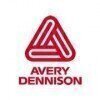Filter interviews by
Rishi FIBC Solutions Junior Supervisor Interview Questions and Answers
7 Interview questions
The least count of a vernier is the smallest measurement that can be read from the scale.
It is determined by the number of divisions on the vernier scale and the main scale.
It is calculated by dividing the smallest division on the main scale by the number of divisions on the vernier scale.
For example, if the smallest division on the main scale is 1 mm and the vernier scale has 10 divisions, the least count would b...
Kinetic energy is the energy possessed by an object due to its motion.
Kinetic energy is directly proportional to the mass of the object and the square of its velocity.
Examples of kinetic energy include a moving car, a rolling ball, and a flying airplane.
Kinetic energy can be converted into other forms of energy, such as potential energy or thermal energy.
The unit of measurement for kinetic energy is joules (J).
0.05 mm is equal to 50 microns.
1 mm = 1000 microns
0.05 mm = 50 microns
Potential energy is the energy possessed by an object due to its position or state.
It is stored energy that can be converted into kinetic energy.
Examples include a stretched spring, a raised weight, or a compressed gas.
The formula for potential energy is PE = mgh, where m is mass, g is acceleration due to gravity, and h is height.
Potential energy can be gravitational, elastic, electric, or chemical.
It is an import...
Oil lubricates engine parts, reduces friction, and prevents wear and tear.
Oil lubricates engine parts to prevent metal-to-metal contact
Oil reduces friction between moving parts, which reduces heat and wear
Oil helps to cool the engine by carrying heat away from the combustion chamber
Oil prevents corrosion and rust by forming a protective layer on engine parts
Regular oil changes are necessary to maintain engine heal...
Quality control is the process of ensuring that a product meets the desired quality standards, while quality assurance is the process of preventing defects before they occur.
Quality control involves inspecting and testing products to ensure they meet the desired quality standards.
Quality assurance involves implementing processes and procedures to prevent defects from occurring in the first place.
Quality control is...
Specific gravity of water is 1.0.
Specific gravity is the ratio of the density of a substance to the density of a reference substance.
Water is often used as the reference substance with a specific gravity of 1.0.
Specific gravity is used to determine the purity of a substance or to identify an unknown substance.
For example, the specific gravity of gold is 19.3, which means it is 19.3 times denser than water.
Rishi FIBC Solutions Junior Supervisor Interview Experiences
1 interview found
Interview Questionnaire
10 Questions
- Q1. whats is kinetic energy ?
- Q2. Least count of vernier ?
- Q3. What is purpose of oil in engine ?
- Ans.
Oil lubricates engine parts, reduces friction, and prevents wear and tear.
Oil lubricates engine parts to prevent metal-to-metal contact
Oil reduces friction between moving parts, which reduces heat and wear
Oil helps to cool the engine by carrying heat away from the combustion chamber
Oil prevents corrosion and rust by forming a protective layer on engine parts
Regular oil changes are necessary to maintain engine health an...
- Q4. What's is potential energy ?
- Ans.
Potential energy is the energy possessed by an object due to its position or state.
It is stored energy that can be converted into kinetic energy.
Examples include a stretched spring, a raised weight, or a compressed gas.
The formula for potential energy is PE = mgh, where m is mass, g is acceleration due to gravity, and h is height.
Potential energy can be gravitational, elastic, electric, or chemical.
It is an important c...
- Q5. Specific gravity of water ?
- Ans.
Specific gravity of water is 1.0.
Specific gravity is the ratio of the density of a substance to the density of a reference substance.
Water is often used as the reference substance with a specific gravity of 1.0.
Specific gravity is used to determine the purity of a substance or to identify an unknown substance.
For example, the specific gravity of gold is 19.3, which means it is 19.3 times denser than water.
- Q6. How much microns in 0.05 mm
- Q7. What's is your salary expectation
- Q8. Whats time cycle
- Ans.
Time cycle refers to the duration of a repetitive process or event.
It is the time taken for a process to complete and start again.
It can be used to measure the frequency of an event.
For example, the time cycle of a washing machine is the time it takes to complete one wash cycle.
In manufacturing, time cycle is used to measure the time it takes to produce one unit of a product.
- Q9. About 5s
- Q10. Difference between quality control &quality assurance
- Ans.
Quality control is the process of ensuring that a product meets the desired quality standards, while quality assurance is the process of preventing defects before they occur.
Quality control involves inspecting and testing products to ensure they meet the desired quality standards.
Quality assurance involves implementing processes and procedures to prevent defects from occurring in the first place.
Quality control is reac...
Interview Preparation Tips
if have experienced . explain your responsibilities with good knowledge
Top trending discussions






Interview questions from similar companies

Senior Executive Interview Questions & Answers
LEAP India Private Limitedposted on 27 Aug 2022
I applied via Referral and was interviewed in Nov 2022. There were 3 interview rounds.

(2 Questions)
- Q1. HR will ask your current job profile & work experience
- Q2. HR will ask notice period & about salary structure
HOD will discuss with candidate about work experience
Interview Preparation Tips

I appeared for an interview in Oct 2024, where I was asked the following questions.
- Q1. How do you deal with experienced workers on shop floor, what are your approaches to increase efficiency and achieving targets with maintaining satisfaction in manpower.
- Ans.
Engaging experienced workers through collaboration, recognition, and continuous improvement fosters efficiency and satisfaction.
Foster open communication: Regularly hold meetings to discuss challenges and gather input from experienced workers.
Implement recognition programs: Acknowledge individual and team contributions to boost morale and motivation.
Encourage mentorship: Pair experienced workers with newer employees to...
- Q2. Reason behind joining the company
- Ans.
I am drawn to this company for its innovative approach, strong values, and commitment to excellence in the industry.
The company's reputation for innovation aligns with my passion for driving change and improvement.
I admire the strong corporate values that prioritize integrity and social responsibility, which resonate with my personal beliefs.
The opportunity to work with a talented team and contribute to impactful proje...
- Q3. Lean manufacturing?
- Q4. What are your KPIs in current company?
- Ans.
My KPIs focus on revenue growth, customer satisfaction, and operational efficiency to drive strategic success.
Revenue Growth: Achieved a 20% increase in annual revenue through strategic partnerships and market expansion.
Customer Satisfaction: Maintained a 95% customer satisfaction score by implementing feedback loops and improving service delivery.
Operational Efficiency: Reduced operational costs by 15% by streamlining...
- Q5. What is TPM?
- Ans.
TPM stands for Total Productive Maintenance, a holistic approach to equipment maintenance aimed at maximizing productivity.
Focuses on proactive and preventive maintenance to reduce downtime.
Involves all employees in maintenance activities, not just maintenance staff.
Utilizes techniques like autonomous maintenance, where operators take responsibility for routine maintenance.
Aims to improve equipment effectiveness by min...
- Q6. Have you any expirience to work in any unionized organization?
- Q7. How do you ensure optimal utilisation of machines and manpower on shop floor?
- Ans.
I ensure optimal utilization of machines and manpower through strategic planning, continuous monitoring, and effective communication.
Implement a robust scheduling system to allocate tasks based on machine capabilities and workforce skills.
Conduct regular training sessions to enhance employee skills, ensuring they can operate multiple machines efficiently.
Utilize data analytics to monitor machine performance and identif...
- Q8. What are expectations with the company in future?
- Ans.
I envision a collaborative environment where innovation drives growth and we achieve shared goals through strategic partnerships.
Foster a culture of innovation: Encourage teams to explore new ideas, like implementing AI in patient care.
Enhance collaboration: Build partnerships with other organizations to expand our reach and resources.
Focus on sustainability: Implement eco-friendly practices that align with our corpora...
- Q9. How many members in family, reasons to switch hometown?
- Ans.
I come from a family of four, and I switched hometowns for career growth, better opportunities, and a change in lifestyle.
Family of four: parents and one sibling.
Career growth: Moved to a city with more job opportunities in my field.
Lifestyle change: Desired a more urban environment with diverse culture.
Education: Sought better educational institutions for my sibling.
Community: Wanted to be part of a vibrant community ...
- Q10. What is buffer stock?
- Ans.
Buffer stock is a reserve of a commodity maintained to stabilize prices and ensure supply during fluctuations.
Buffer stock helps in managing price volatility in markets.
For example, governments may maintain buffer stocks of grains to prevent shortages during poor harvests.
It acts as a safety net for producers and consumers alike.
Buffer stocks can be used in various sectors, including agriculture and commodities like oi...
- Q11. What is OEE?
- Ans.
OEE (Overall Equipment Effectiveness) measures manufacturing productivity by evaluating availability, performance, and quality.
OEE is calculated as: OEE = Availability x Performance x Quality.
Availability considers downtime; for example, if a machine is down for maintenance.
Performance measures the speed of production; for instance, if a machine produces 80 units instead of the expected 100.
Quality assesses the number ...
Interview Preparation Tips

Senior Engineer Interview Questions & Answers
Hindusthan National Glassposted on 22 Sep 2022
I applied via Approached by Company and was interviewed in Apr 2022. There were 2 interview rounds.

(4 Questions)
- Q1. What is preventive maintenance
- Ans.
Preventive maintenance is a proactive approach to maintenance that aims to prevent equipment failure before it occurs.
Regularly scheduled inspections and maintenance
Replacing worn or damaged parts before they cause a breakdown
Cleaning and lubricating equipment to prevent wear and tear
Keeping accurate records of maintenance activities
Examples: changing the oil in a car, replacing air filters in HVAC systems, inspecting ...
- Q2. What do you know about sap pm module
- Ans.
SAP PM module is used for managing maintenance activities of an organization.
PM stands for Plant Maintenance
It helps in planning and scheduling maintenance tasks
Tracks equipment and maintenance history
Provides cost analysis and reporting
Integrates with other SAP modules like MM and FI
Example: A manufacturing company can use SAP PM to schedule maintenance of their production equipment
- Q3. What are the utilities equipments you handled
- Ans.
I have handled various utilities equipments including generators, chillers, HVAC systems, and water treatment plants.
Generators: responsible for maintenance and repair of diesel and gas generators
Chillers: handled installation and maintenance of air-cooled and water-cooled chillers
HVAC systems: managed repair and maintenance of heating, ventilation, and air conditioning systems
Water treatment plants: responsible for op...
- Q4. What are the various types of bearings
- Ans.
Bearings are used to reduce friction between two moving parts. There are several types of bearings.
Plain bearings
Rolling element bearings
Jewel bearings
Fluid bearings
Magnetic bearings
Interview Preparation Tips
Skills evaluated in this interview

I applied via Walk-in and was interviewed before Sep 2022. There were 3 interview rounds.

(1 Question)
- Q1. HR asked like your salary, company location expected salary and resion for change etc.
(1 Question)
- Q1. Questions like your profile which is mentioned on your resume
Interview Preparation Tips

I applied via Naukri.com and was interviewed in Nov 2020. There were 3 interview rounds.
Interview Questionnaire
2 Questions
- Q1. All basic of instrument,PLC, electrical, power etc are asked.
- Q2. Please go through profibus basics, encoders, techometer, power consumption of plant & related, AC & DC Drives, Motor, Energy saving etc
Interview Preparation Tips
At COSMO all are good & very supportive.
Very good place to work.

Senior Engineer Interview Questions & Answers
Manjushree Technopackposted on 25 Jun 2024
I applied via Referral and was interviewed in Dec 2023. There was 1 interview round.
(2 Questions)
- Q1. About your day to day Activities
- Q2. Random Tech Questions

I applied via Campus Placement and was interviewed in Jul 2020. There was 1 interview round.
Interview Questionnaire
2 Questions
- Q1. What is your aim in this company?
- Q2. What is your thought about this company & what you can handle any problem in the company's work.
- Ans.
I am impressed with the company's reputation and believe I have the skills to handle any problem in their work.
I have researched the company and am impressed with their track record and positive reviews.
I have a strong background in problem-solving and have successfully resolved complex issues in my previous roles.
I am confident in my ability to adapt to new challenges and learn quickly to address any problem that may ...
Interview Preparation Tips

I applied via Naukri.com and was interviewed before Jan 2022. There were 2 interview rounds.

(2 Questions)
- Q1. Personal life details
- Q2. Pervious work experience
Interview Preparation Tips

I applied via Company Website and was interviewed before Feb 2023. There was 1 interview round.
(1 Question)
- Q1. How to maintain plant
- Ans.
To maintain a plant, regular inspections, preventive maintenance, and efficient resource management are essential.
Perform regular inspections to identify any issues or potential problems.
Implement a preventive maintenance program to address maintenance needs before they become major issues.
Ensure efficient resource management by optimizing production processes and minimizing waste.
Train and educate plant staff on prope...
Rishi FIBC Solutions Interview FAQs
Tell us how to improve this page.
Rishi FIBC Solutions Interviews By Designations
- Rishi FIBC Solutions Junior Supervisor Interview Questions
- Rishi FIBC Solutions Planning Officer Interview Questions
- Rishi FIBC Solutions Planning Executive Interview Questions
- Rishi FIBC Solutions Quality Assurance Officer Interview Questions
- Rishi FIBC Solutions Manager-F&A Interview Questions
- Rishi FIBC Solutions Account Planning Interview Questions
Interview Questions for Popular Designations
- Senior Engineer Interview Questions
- Senior Executive Interview Questions
- Junior Engineer Interview Questions
- Supervisor Interview Questions
- Production Supervisor Interview Questions
- Electrical Supervisor Interview Questions
- Shift Engineer Interview Questions
- Service Advisor Interview Questions
- Show more
Interview Questions from Similar Companies
|
Assistant Manager
34
salaries
| ₹4.5 L/yr - ₹8.4 L/yr |
|
Production Engineer
23
salaries
| ₹2 L/yr - ₹4.5 L/yr |
|
Production Supervisor
18
salaries
| ₹1.6 L/yr - ₹3.7 L/yr |
|
Quality Engineer
15
salaries
| ₹3 L/yr - ₹5.2 L/yr |
|
Production Incharge
7
salaries
| ₹3.2 L/yr - ₹5.3 L/yr |

Uflex

Huhtamaki

EPL Limited

Manjushree Technopack
- Home >
- Interviews >
- Rishi FIBC Solutions Interview Questions











